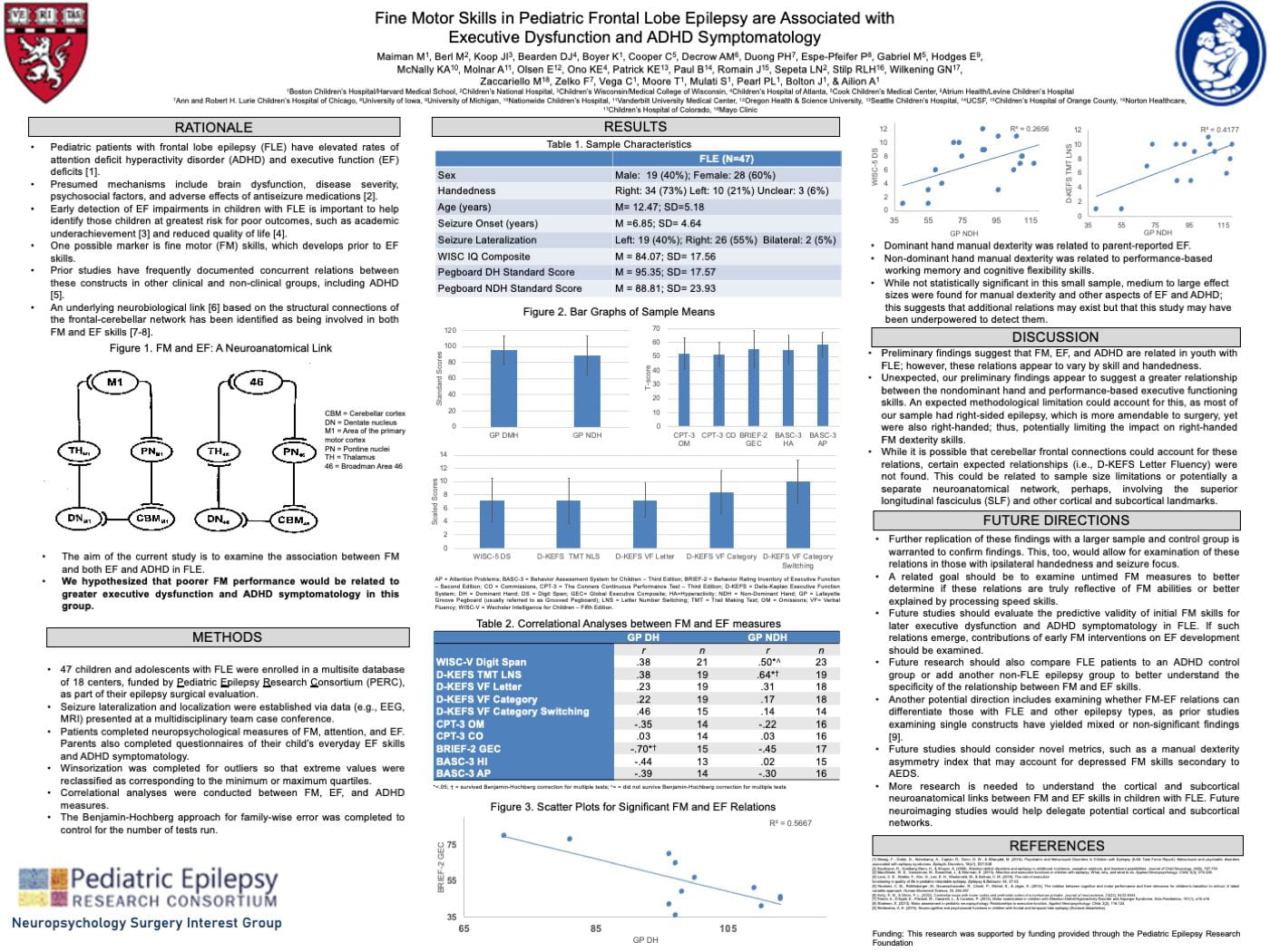Scientific Abstract
Background: Children with frontal lobe epilepsy (FLE) have higher rates of attention deficit hyperactivity disorder (ADHD), as well as executive functioning (EF) and fine motor (FM) challenges. While relations between these constructs have been established in children with ADHD, they are not well understood in pediatric FLE. We hypothesized that poorer FM performance would be related to greater executive dysfunction and ADHD symptomatology in this group.
Methods: 47 children with FLE (AgeM=12.47, SD=5.18) completed neuropsychological measures of FM, attention, and EF as part of their pre-surgical workup. Parents also completed questionnaires of everyday EF and ADHD symptomatology. Correlational analyses were conducted to examine FM, EF, and ADHD relations.
Results: Dominant hand (DH) manual dexterity (i.e., Grooved Pegboard) was related to parent-reported EF (Behavior Rating Inventory of Executive Function, Second Edition–Global Executive Composite: r(15) =-.70, p<.01, d=1.96). While not statistically significant, medium to large effect sizes (ranging from 0.41 to 1.04) were found for DH manual dexterity and parent-reported inattention and hyperactivity/impulsivity, as well as performance-based attention, working memory, and cognitive flexibility, suggesting that these relations may exist but that our study was underpowered to detect them. Non-dominant hand (NDH) manual dexterity was related to performance-based working memory (Wechsler Intelligence Scale for Children – Fifth Edition –Digit Span: r(19)=.50, p<.01, d=1.12) and cognitive flexibility (Delis-Kaplan Executive Function System –Trails Making Test: r(17)=.64, p<.01, d=1.67). Again, medium to large effect sizes (ranging from 0.65 to 1.01) were found for NDH manual dexterity and parent-reported EF and performance-based phonemic fluency.
Conclusions: Findings suggest that FM, EF, and ADHD are related in pediatric FLE though relations appear to vary by skill and hand. Future studies should evaluate the predictive validity of initial FM skills for later executive dysfunction and ADHD symptomatology in FLE. If such relations emerge, contributions of early FM interventions on EF development should be examined.
Search posters

